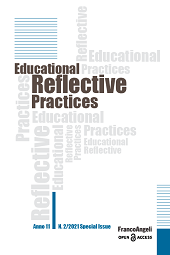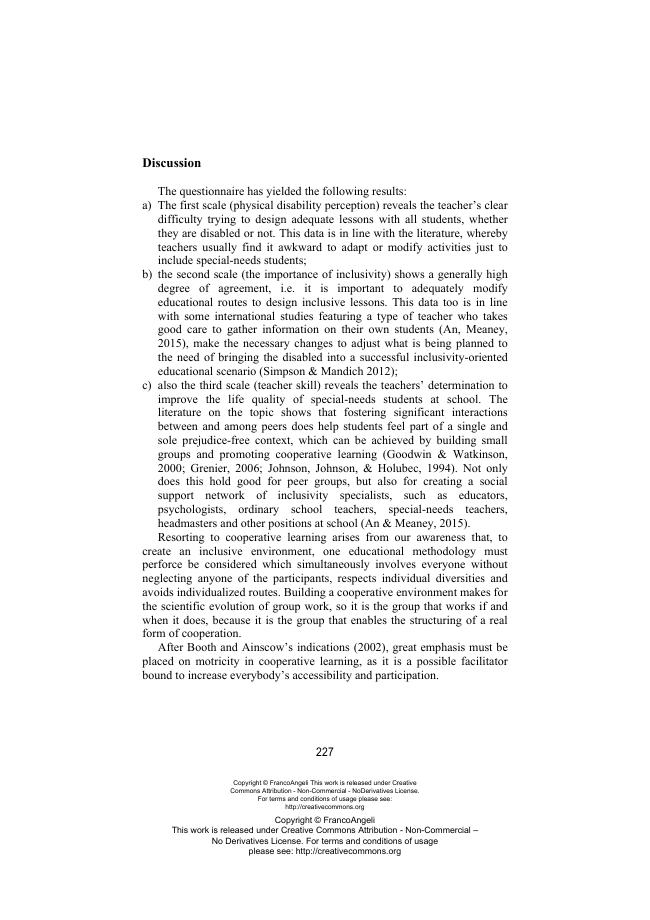Perception of disability : motricity-oriented education routes and inclusivity-based research perspectives
P. 222-232
Many education scholars consider motricity aggregating and inclusive (Bertagna, 2005; Block & Vogler, 1994; Goodwin & Watkinson, 2000; Moliterni, 2013). It helps all students to develop specific motor and relational skills and non-special-needs students to manage special needs effectively (Slininger, Sherrill, & Jankowski, 2000). These positive aspects also have their impact on PE teachers according to their individual views of disability and special needs (Papadopoulou, Kokaridas, Papanikolaou, & Patsiasouras, 2004; Tripp & Rizzo, 2006). However, teacher attitude towards a special-needs student does influence day-to-day teaching and learning.
The special-needs teacher's perception of disability is an important inclusivity factor that could make educational practice difficult, as class design needs constant adaptation and change. The paper presents an important educational experience at the University of Reggio Calabria, Italy, as we worked on our future special-needs teachers' perception and consequent management of inclusivity through motricity knowledge acquisition, with a view to designing and practicing more and more inclusive processes. [Testo dell'editore]
-
Artikel aus derselben Ausgabe (einzeln erhältlich)
-
Informationen



